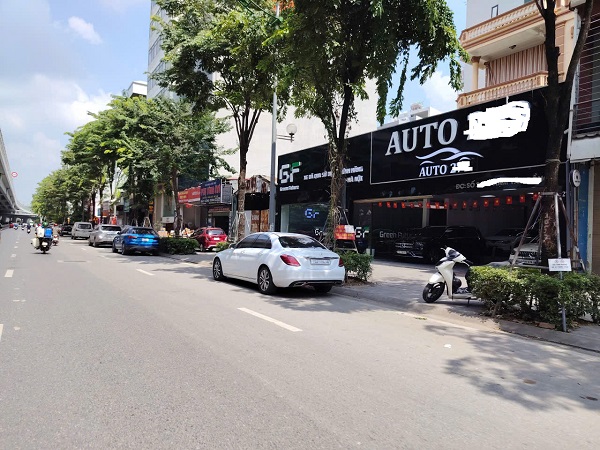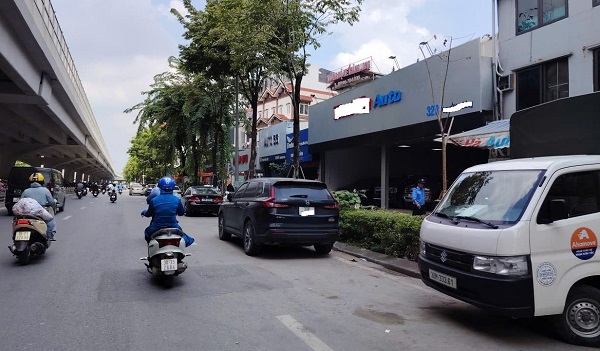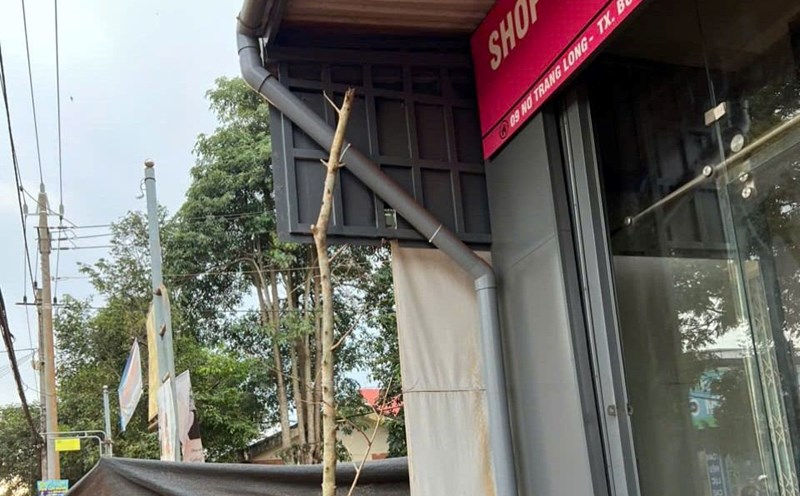vibrant input

Sharing with Lao Dong Newspaper, Mr. Nguyen Minh Do, owner of an old car showroom on Pham Van Dong Street (Hanoi) said that in recent months, the number of cars sold by people has increased sharply. According to him, the main reason comes from the fear of " tightening" gasoline vehicles in the near future, causing many people to switch to electric vehicles.
"Recently, the economy has been difficult, many people who are doing business at a loss from virtual currency or real estate investment have also had to sell their cars to get their finances. Therefore, the entrance to the used car is very vibrant, said Mr. Do.
Regarding concerns about flooded vehicles entering the market, Mr. Do said: Prophetic showrooms have almost no flooded vehicles. Flooded vehicles need 2-3 months to be restored, and the garage is overloaded. In addition, flooded vehicles have suffered a very serious depreciation, sometimes only 1/4 of their original value, so owners often keep them for use instead of selling them cheaply".
According to him, while the supply of used cars is very abundant, dealers with brands are not interested in flooded cars. However, some small, unknown establishments can still buy flooded vehicles for renovation and then sell them on the market without clearly reporting the status. Buyers need to be cautious with floating cars of unknown origin, especially those with unusually cheap prices, Mr. Do advised.
Mr. Nguyen Son, owner of another used car store in Hanoi, also commented that the number of used cars imported is currently much larger than last year. However, in contrast to vibrant input, output is very slow.
Outlets drop, showroom frozen

A survey by Lao Dong Newspaper on streets specializing in selling used cars such as Cau Giay and My Dinh shows that many showrooms have temporarily stopped operating. Some points on Pham Van Dong Street still maintain a large number of vehicles on display, but the number of visitors coming to see and buy is very small.
Despite abundant supply and sharp decline in car prices, the used car market is still sluggish. Previously "hot" models such as the 2020 Toyota Vios with automatic license plate are now only from 335 - 400 million VND, or the 2020 Honda City 1.5 is being advertised for sale at 378 million VND - 70-100 million VND lower than the same period last year.
Mr. Duc, a sales staff at a car showroom on Pham Van Dong Street, shared: "Since the beginning of the year, the number of cars sold has been very small. Most customers only ask for prices via phone or social networks, come to see the car many but rarely close the deal. Some people have finished watching, quoted prices and then kept quiet, and have not yet reached the negotiation stage".
According to agency owners, weak purchasing power partly reflects the difficult economic situation. Since the beginning of 2025, people's income has not recovered significantly, and business activities in many fields are still sluggish. "The bustling commercial streets are now deserted, which also directly affects the used car industry - which depends heavily on customers with good average spending ability," Mr. Duc analyzed.
Another factor that has caused the used car market to "freeze" is that new car manufacturers are racing for incentives. A series of new car models have been discounted, supported with loan interest rates, or promoted with tens of millions of VND. Consumers tend to choose to buy new cars to get a full warranty, instead of taking risks with used cars, even cheaper.
"New car prices are falling to a record level, with a B-class sedan costing just over 400 million VND. This makes buyers confused, while sellers of used cars have to continuously reduce prices to compete, said Mr. Nguyen Son.
In that situation, many showrooms are forced to "cut interest", sell to break even or suffer losses to recover cash flow. Others choose to narrow the scale, limit the import of new vehicles to avoid inventory. However, the number of buyers has not shown any signs of improvement.
According to the Vietnam Automobile Manufacturers Association (VAMA), total sales in the whole market in September 2025 reached 30,688 vehicles, up 18% over August, but still down 16% over the same period in 2024 (new vehicles). This figure shows that overall demand for cars is still lower than last year, although there is a slight recovery trend.











